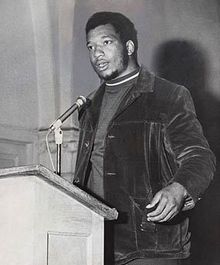A Quote by Mollie Hemingway
Policy proposals to ensure the integrity of ballots are routinely presented by Democrats as not just racist but as having no function other than racism.
Related Quotes
Tainting the Tea Party movement with the charge of racism is proving to be an effective strategy for Democrats. There's no evidence that Tea Party adherence are any more racist than other Republicans and indeed many other Americans. But getting them to spend their time purging their ranks and having candidates distance themselves should help Democrats in November, having one's opponent rebut charges of racism is far better than discussing joblessness.
And what is the Republican solution to these outrageous [racial] inequalities? There isn't one. And that's the point. Denying racism is the new racism. To not acknowledge those statistics, to think of that as a 'black problem' and not an American problem. To believe, as a majority of FOX viewers do, that reverse-racism is a bigger problem than racism, that's racist.
Another response to racism has been the establishment of unlearning racism workshops, which are often led by white women. These workshops are important, yet they tend to focus primarily on cathartic individual psychological personal prejudice without stressing the need for corresponding change in political commitment and action. A woman who attends an unlearning racism workshop and learns to acknowledge that she is racist is no less a threat than one who does not. Acknowledgment of racism is significant when it leads to transformation.
For decades now, Republicans and Democrats have shared the same mythology around the great American meritocracy. The only real difference was that republicans thought the American meritocracy was already perfect and Democrats believed it could be perfected if we just dealt with racism and sexism and other forms of bigotry.
The impossible often has a kind of integrity to it which the merely improbable lacks. How often have you been presented with an apparently rational explanation of something that works in all respects other than one, which is just that it is hopelessly improbable? Your instinct is to say, 'Yes, but he or she simply wouldn't do that.



































